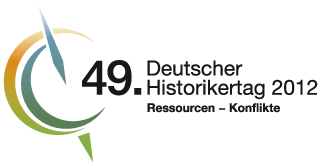The Law of baptism in medieval Europe: Practical problems and their solution
Referent/in: Richard HelmholzAbstract:
Baptism, like the Church’s other sacraments, was (and is) defined and regulated by the canon law. That law was aimed at putting into effect the theology of baptism as found in the New Testament, but it also went beyond the Scriptural mandates in order to meet problems that arose in practice. This talk describes the principal features of the law as it came face to face with these problems. It is also meant to connect the canon law with the theme of this panel at the Deutscher Historikertag Mainz 2012, baptism and the rights of the individual. There is in fact a natural connection between the two. A recurrent dilemma for the canonists in this area was resolution of conflicts between objective law and individual intent. Baptism was objectively necessary for salvation, for example, but its efficacy also depended upon willing adherence to the Christian religion. Its basic elements were set forth in the Scriptures, but some room had to be left for the mistakes caused by the ignorance or individual error. The paper will deal with several examples of tension between these two aspects of the sacrament as they came into conflict. It will discuss infant baptism, the formal requirements for baptism, the ministers of baptism, and the problem of coercion in baptism. It will end with a brief comparison of the canon law’s treatment of consent in the law of marriage and in the law of baptism. The differences between the two shows with particular clarity the canon law’s preference for external legal standards and the difficulty of maintaining that preference when the intention of individual men and women mattered.


